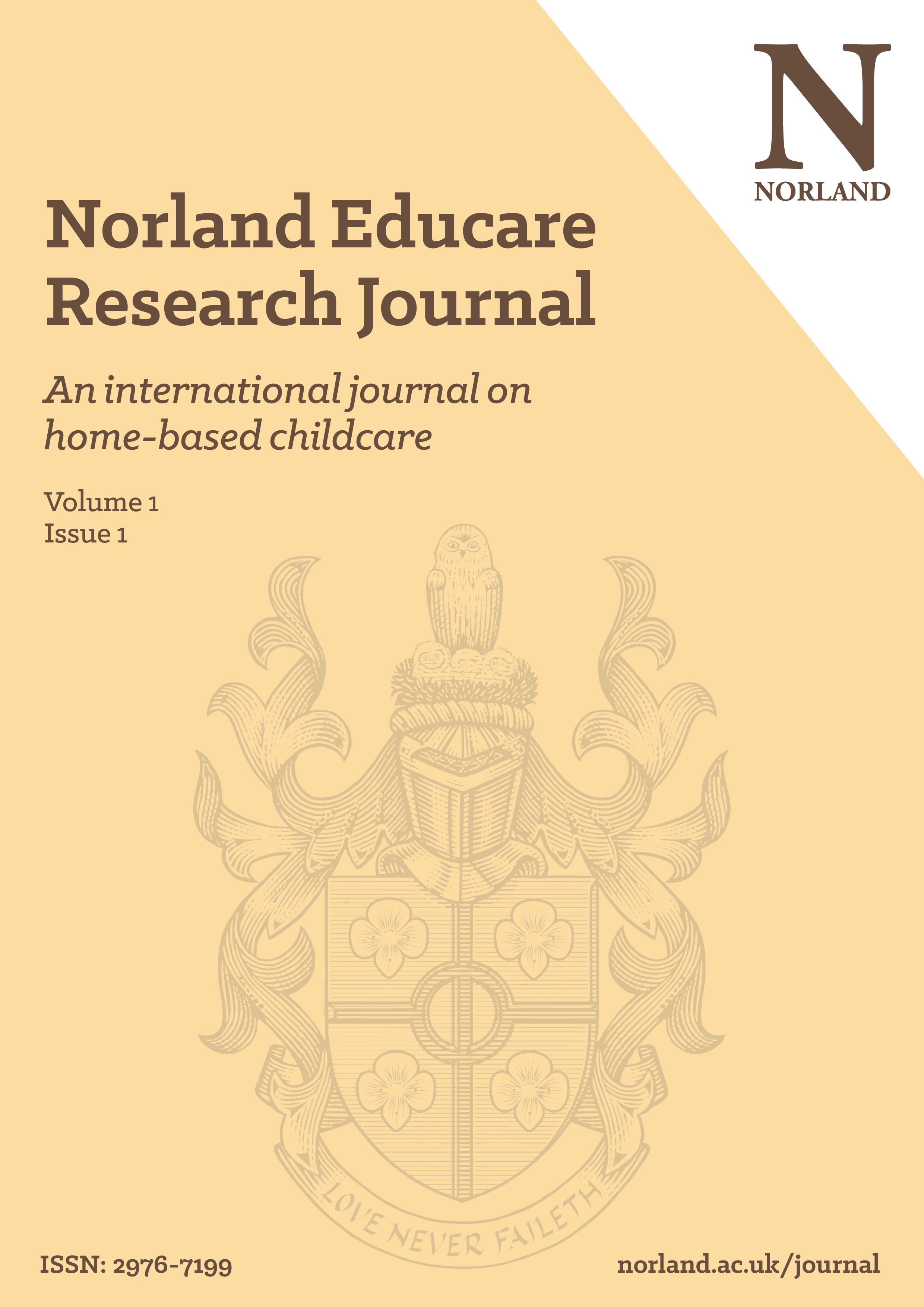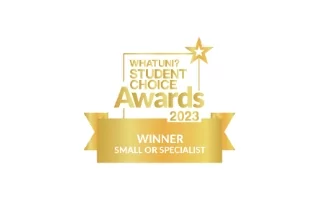“Relationships are what matter most to infants and young children” – an interview with Dr Penelope Leach
Back to Norland Educare Research Journal
About the journal
Read more about the journalEditorial board
View our editorial boardJournal policies and ethics
View our policies and ethicsPeer review process
View peer review processInformation for readers
Read our information for readersInformation for authors
Read our information for authorsCall for papers
View our call for papersTerms and conditions
View terms and conditionsIntroduction
Penelope Leach, PhD, CBE, child psychologist, is a very well-known name, especially for the generation of parents who raised their children in the 1980s and 1990s with reference to her books: Babyhood (Leach, 1974), an account of child development accessible to the non-specialist, and Your Baby and Child (Leach, 1977; 1988; 1997), a book of common-sense childcare advice based on insights from child development, now in a new edition (Leach, 2022).
Dr Penelope Leach has long been an important advocate for the wellbeing of young children, upholding children’s rights in many different roles and campaigns, including as Chair of the Child Development Society, 1994–95; Vice-President of the Health Visitors’ Association, 1988–99; and a founding member of the Association for Infant Mental Health UK, from 1998. Her views on physical punishment led to the founding of EPOCH (End Physical Punishment of Children) (1988–2004), now Children Are Unbeatable!, and she worked as a trustee to the National Society for the Prevention of Cruelty to Children from 1996 to 1999.
Dr Leach’s work is of particular interest for home-based educare because she was President of the National Childminding Association (NCMA) from 1999 to 2009, when she worked to raise the public profile of childminding as a high-quality childcare option and to increase the professionalism of childminders through improved access to training. She also designed and co-directed the Families, Children and Child Care study. This longitudinal study of 1,200 children from birth to school entry, from 1997 to 2005, included different forms of childcare (at home with parents; informal care by grandparents, relations or friends; care by nannies in the child’s own home; care by childminders in the childminder’s home; and group care in both public and private day nurseries or childcare centres), and it examined the effects of childcare on outcomes for children, including their health and growth, social and emotional development, and cognitive and educational development (Leach et al., 2008; Leach, 2009).
We are delighted that Dr Penelope Leach agreed to be the first specialist in home-based childcare to be interviewed for the Norland Educare Research Journal. Paulette Luff, who brought up her two daughters with a Baby and Child book in one hand and a baby in the other, spoke to Penelope Leach in April 2022.
The following words are those of Penelope Leach. They have been taken from the conversation with her and organised thematically, to cover two key publications, Babyhood and Your Baby and Child; the social context for the new edition of Your Baby and Child; the importance of learning about child development; thoughts about home-based childcare; some attributes of ideal childcare; the challenges of Covid-19 lockdowns and the ‘infant gap’; messages for policymakers about the needs of children under three years old; and a final message for readers who are caring for young children.
Babyhood and Your Baby and Child
I am a research psychologist. I started with a history degree and then switched to psychology and did a psychology PhD and was working for a man called James Douglas, who ran an MRC[1] research unit. I worked there very happily for quite a long time and that was my academic beginning.
Eventually I had two children of my own. In those days there were many women who stayed at home to care for their children, or who worked only part-time, and we all used to push buggies around the park and talk together. I found, when I had my daughter, that I had useful information about child development that other people lacked. They really needed some of the knowledge that I had got and that was how Babyhood began. An example was toilet training, where at that time, in 1967, there was concern about when we should start toilet training and how we should do it. A very eminent paediatrician called Berry Brazelton, in America, had just done the first study of toilet-training readiness and published research which made it very clear that, however early you start, if you started to train a baby at a year old, you would still be doing it at two-and-a-half, but the same would be true if you started at two. So this was additional information that I was lucky to have. There were other, similar issues which would be as useful to others as they were to me, and that was what got me started – and I have been at it ever since!
Babyhood was the first book that I wrote, and it very deliberately was not an advice book. It was an information book, and I had always sworn that I would never write an advice book for parents because everybody is different, and I would not claim to know better than anybody else. Then Babyhood came out and many people, several hundred over a couple of years, wrote to me, saying, “How lovely to have a book that doesn’t tell me what to do … But could you tell me what to do about Eliza’s thumbsucking?”
This went on, and it became clear that quite a lot of people, who were interested, could not apply the general information about child development to their own particular children. That is why when they came and asked me to write Your Baby and Child, I agreed, despite all I had said. Nevertheless, Babyhood goes on selling, and is on reading lists all over the world.
A completely new version of Your Baby and Child was published in the UK in July. It is very different, because, whilst babies have not changed much, and people have not changed much, the society that they share has changed a great deal. This is not just an update; it is a rewrite. The new edition of the book is much more to do with infant development than infant care. How people look after their babies is personal to them, but what they understand about those babies is something that I hope the book will help with. It applies to professionals or non-professionals alike.
Changing social context
This new book, therefore, is aiming to do two things. One is to catch up on aspects of development, because we have learned a tremendous amount, even in the last 10 years, and several changes are happening. As one example, if you take something like bed-sharing and cot deaths, 10 years ago it was generally thought that taking a baby into your bed was a risk factor for cot death. We have gone through a phase where people were questioning that, and now we have reached a point where some research is indicating that under certain very particular circumstances, bed-sharing is actually a safety measure, and that infants can be less likely to succumb to cot death if they are co-sleeping than if they are not.
I am also concerned, of course, with the difficulty of balancing working against caring, being at home versus being at work, particularly given the enormous range of differences in the constitution of families. We need to be thinking much more about what it means to have a child or children, and everyone needs to be very sure about their own decision, whether they want this baby, which perhaps is a second or third or fourth, and how to make the adaptation between doing the best by the baby and doing the best by themselves, in terms of their own fulfilment.
I think one of the biggest changes has been that 10 years ago, for many people, there was a choice between aspects of working and caring. In other words, there were still quite a lot of mothers who stayed at home with their baby, at least for the first year. Now it is extremely rare, because people simply cannot afford it. It is a question of finances but also a gender issue. If we are going to have women as involved in the workplace as men are, we surely need to have men as involved in the home as women are. If I had to make one cry, it would be that. The only people I have heard about who have really come close to solving this working/home dilemma are where the mother and father, or two women, or two men, have managed to share work, home and childcare responsibilities equally.
Learning about child development in school
I think it would be quite useful to schoolchildren – primary schoolchildren – to learn more about child development while they are still between childhood and adulthood. It would be the ideal time, because they can still remember something of what it felt like to be three, or six, or eight. By the time they grow up, those memories are lost. In my own family, when we were all sharing in a multigenerational household, my son’s friends loved coming to stay because there was a baby, my new nephew, in the house, and they absolutely loved this baby and toddler – and these were all boys aged 13 or 14. So, I think that we could take more notice of that.
Your Baby and Child was trying to set out development in a way that has not often been done before. I considered different aspects of childcare with a focus on development, emotional as well as physical. Then, after that, I did a lot of work on parental separation and divorce and also worked on types of childcare, including home-based care.
Home-based childcare
I think that home-based childcare is hugely important. In the course of my now long life, I was very supportive of in-home day care, in the form of childminding, because I thought there was evidence that nursery care, for the very youngest children, was less than ideal. I still do believe that although there are wonderful nurseries, many nurseries are not suitable for people of eight months old. The need for individual relationships and the fact that physical brain development depends upon responsive relationships with individuals means that one-to-one care is preferable. Of course, you could have a terrible nanny or childminder, but, equally, if you have a good one, then that is undoubtedly advantageous for early development.
That was my starting point, and we wanted to make childminding a profession, desperately, and I worked for 10 years at the NCMA with that in mind. I do not think that we really succeeded. It is not very clear how much childminding still goes on. Nothing like as much as there used to be, of course. Primarily, the truth is that it is almost impossible to balance income against expenditure. You cannot make a professional wage out of childminding, if you do that childminding well, and I think that is why it was difficult to professionalise the role. There just were too many childminders who felt that they could not earn a living wage and so they gradually moved out of the system. There were also quite a few who gradually moved towards being mini nurseries. They would take on an assistant so that they could take another two children, and some of them were very good. I am sure that they still are.
In the FCCC study[2], the most interesting finding, overall, was that the quality of care that a child received seemed to depend, more than anything else, on the relationship between the parent and the carer. It mattered more that the carers got on well with the mother (or father) than that they loved the child, because of course the two things went together.[3] Certainly, the nursery world does not always allow for that relationship to be built successfully. It is a rare day nursery where there is time to talk in depth at drop-off and pick-up, and there are challenges where the nursery hours are longer than the carers’ shifts. You tend to get a change of carer at exactly that point in the day when young toddlers are overtired, overstressed and needing their parent, so the end of the afternoon can be a difficult time in the baby rooms of many nurseries.
Ideal childcare
So you asked me what my ideal would be. If it is not to be someone with whom the baby has a close relationship, it would look like care offered by somebody who was trained to offer it. I think training is hugely important. It would be somebody who was trained to care for young children. Somebody who wanted to do this job. I think one needs access to specialist training, for children with special needs, for example, and babies, as opposed to toddlers or slightly older children. So, the ideal has to be somebody who is really concerned with infancy, and, as our own research showed, it has to be somebody the parents are comfortable with.
The ideal comes closer to extended family care than it does to nursery care. All over the world, babies and young children are looked after by aunts and grandmothers and older children, and that seems to work well because the child feels secure with these well-known carers, and the mother (or father in some instances) remains the central person in the child’s world. This ideal gives consistency for the child, as well as fostering a positive relationship between carer and parent.
Of course, the ideal is the childcare that the child himself or herself accepts and welcomes. Going to work leaving a weeping toddler is not to be recommended. So, it very much depends not just on mother and carer liking each other, but carer and child. It is where the child feels at home and comfortable and adapts well, and that is due to consistency. Broadly speaking, I think family grouping works better than age grouping, and you are more likely to get that in a home-based situation. Other babies are not necessarily the most entertaining company for a baby under two.
Challenges of Covid-19 lockdowns and the ‘infant gap’
There has been a sort of infant gap. I think that the development of the very youngest children is extremely important and often ignored, and, interestingly, during all the anxiety about children during lockdown and during the whole Covid pandemic, there was a marked tendency to ignore everybody under two. This is very unfortunate, because the truth is, if we do better with the first two years, we automatically do better with the subsequent ones. Of course, missing education has been hugely important, but it is only now that people are beginning to refer to some of the effects on babies and on very young children. For example, it has occurred to people that having most of the adults around you in a mask is detrimental to infants, who are learning to relate to facial expressions.
I start by advocating the importance of early years, preferably before birth, because the importance of the antenatal period is not generally understood. For example, anxiety in pregnancy has an actual physical effect on brain development, and there is good research showing the differences between new infants whose mothers were very anxious during pregnancy or not. There is a great deal that we are beginning to understand that we did not know, even 10 years ago, about hormones during pregnancy and child development.
Certainly, one of the biggest changes that the Covid pandemic has brought about is that it is now taken for granted that people may well work at least partly from home, and the challenge is enormous. It is definitely not possible to single-handedly care for a baby and simultaneously to do a good job at work.
The other thing that I think not enough attention is paid to, when considering the effects of lockdowns during the Covid pandemic, is that while a lot of young children benefited from seeing much more of their parents, particularly their fathers, than they did before, the figures for abuse have skyrocketed, and that is very sad. There is no doubt that the statistics for numbers of young children at risk are much, much higher when people are shut up at home, which indicates that many men, and it is predominately men who are perpetrators, cannot stand being around young children 24 hours a day.
Although many child carers in nurseries and childminders have done wonderful work over the last two-and-a-half years, I think relationships with babies and toddlers have been monstrously neglected. We have had young babies sent to totally strange childminders or new nursery placements during lockdowns. Very little attention was paid to emotional development and the emotional state of very young children – I cannot imagine what it can have been like for them. Normally, we recognise that a baby or young child needs quite a long time to get used to a new person and they spend time settling in gradually, with the parent there. It’s not only that those transition practices were abandoned – maybe they had to be – but the potential distress for the children did not seem to be acknowledged. There wasn’t sufficient concern about how the children themselves would feel.
Now people are beginning to talk about it, for example, with realisation that children’s experiences of adults outside their immediate family became very limited when they either met masked people as soon as they left their home, or perhaps did not leave their homes very much. The economic situation was a factor, too, with great difference in quality of life for young children who were in reasonable accommodation with outdoor space in comparison with those who were crowded in perhaps a one- or two-bedroom apartment. The government did make some quite magnificent attempts at financial support. I don’t often thank a Tory government, but I do think that there were some quite good policies. However, these took very little account of family make-up, so little attention was paid to address the difference for a household with children and one without, or what it costs to have a baby as opposed to a toddler or a young child. Expenses such as the cost of nappies and formula milk were not considered.
“Acknowledging and paying attention to the needs of the under-threes needs putting in capital letters” – messages for policymakers
I have a great desire to see more children’s centres, and we have evidence that they work. There is research, that I would love to see printed again in your new journal, which shows that the hospital admissions and the emergency hospital referrals for children who attended the children’s centres was about one-third of that amongst those children who did not attend. So, the effect on child health, let alone mental health or holistic development, was enormous. Yet the research is not very well known, and that wisdom should be publicised.
What you are trying to provide in a children’s centre is a place that is a focal point for the youngest generation of our community, and it almost certainly should be run by the local authority. Every children’s centre needs to be tied to the community in which it is located so that it meets local needs. For instance, at the moment, in some areas, provision would have to be made for people who have recently arrived from a war zone.
So that’s where I would deem not only putting but also ring-fencing money, so that every family with children under school age was within say one mile of a children’s centre. It has to be bricks and mortar, as well as advice and leaflets, and not only open on Wednesdays. One wants it to be available as a place where parents and child carers (including childminders and nannies) can meet with each other, as well as providing spaces and resources for young children. In my ideal, the children’s centre should be a hub of services for young children with availability of all the professionals who deal with young children – health visitors, paediatricians and therapists. That is what I’m envisaging. So, there we are. I’d be lucky to see it, wouldn’t I?
When you think about it, what parents and home-based child carers might need is somewhere to take the children, not just to get advice, but also to access a welcoming and safe environment where the children can meet and play with other children. Maybe during the Covid pandemic it would have done something to lessen the horrendous expansion of abuse. Maybe it could have been said, not just that you could go for one walk a day, but that any child under two could be taken to the local children’s centre.
I don’t know. I’m not the government. I don’t make the regulations. But the idea of acknowledging and paying attention to the needs of the under-threes just needs putting in capital letters!
And a final message for home-based educarers
Relationships are what matter most to infants and young children. Your relationship, with any child that you are caring for, is far more important than the state of his or her overcoat.
Disclaimer
The views expressed in this interview are those of Dr Penelope Leach and do not necessarily reflect the views of the editors of the journal.
References
Leach, P. (1974) Babyhood: infant development from birth to two years. London: Penguin Books.
Leach, P. (1977) Baby and child. London: Michael Joseph.
Leach, P. (1988) Baby and child. 2nd edn. London: Michael Joseph.
Leach, P. (1997) Your baby and child. 3rd edn. London: Penguin Books.
Leach, P. (2009) Child care today. Cambridge: Polity Press.
Leach, P. (2022) Your baby and child: from birth to age five. London: Dorling Kindersley.
Leach, P., Barnes, J., Malmberg, L.-E., Sylva, K., Stein, A. and the FCCC team 1 (2008) ‘The quality of different types of child care at 10 and 18 months: a comparison between types and factors related to quality’, Early Child Development and Care, 178(2), pp. 177–209. Available at: https://doi.org/10.1080/03004430600722655
[1] Medical Research Council.
[2] The Families, Children and Child Care study – see: www.familieschildrenchildcare.org/
[3] See Leach et al., 2008.
Related articles
Front matter and content page: Norland Educare Research Journal
The Norland Educare Research Journal is an international double-blind peer-reviewed journal, published annually, online only. It is an open access journal, offering free-of-charge publication to researchers and authors, and free...
Editorial – Home-based educarers: powerful agents who cannot be neglected!
Home-based childcare, in the form of childminding and nannying, is a vital service to families (Ang et al., 2017). It is mainly used by families, such as those in rural...
Useful links and information for the Norland Educare Research Journal
About the journal
Read more about the journalEditorial board
View our editorial boardJournal policies and ethics
View journal policies and ethicsInformation for readers
View information for readersInformation for authors
View information for authorsCall for papers
View call for papersTerms and conditions
View terms and conditions



Translate this page